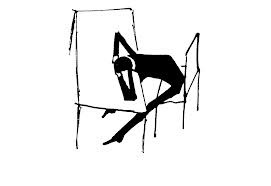
The machine age began one Tuesday afternoon, when a Neanderthal in need of anger management therapy chopped off the corners of a granite square, then watched it roll down the hill. Human progress began.
Progress is a cross-dresser. It saunters onto the stage in a three-piece, $150 per yard serge suit — an animatronic that looks like everyone’s favorite actor. Or, politician. Or uncle. Sorry, Shakespeare. That petty pace no longer “struts and frets his hour upon the stage, And then is heard no more”. Tomorrow is on steroids. What we greet with applause, we watch in horror as it morphs everything in its path into redundancy.
The Immunity Theory
“We’re immune from industrialization,” writers have proclaimed for ages. Yes, we’ve embraced new technologies. Quills, pencils, and typewriters gather dust in antique shops while laptops hum, casting muted, flattering light on our faces. They are tools, subject to whatever we can get out of our head then down to our fingers.
No machine could replace us or experience what French philosopher and deconstructionist Jacques Derrida described as “the anguish that we can only say or write one word at a time, and to choose that word is to neglect thousands of words which might do as well or better.”
We were safe from artificial intelligence. Until now.
On a recent edition of NPR’s Morning Edition, Stacy Vaneck Smith, a reporter for Planet Money, told what happened when an NPR reporter raced a machine to write the news of Denny’s earnings.
NPR White House correspondent Scott Horsley finished in seven minutes. WordSmith took two.
Judge for yourself. Since you started reading this post, some diabolical engineer deep in the bowels of Automated Insights has gotten closer to perfecting the angst algorithm.
Question: Is that engineer a human or computer?
Illustration: Diane Owens Prettyman. “What I learned in the Kafka Museum in Prague.”